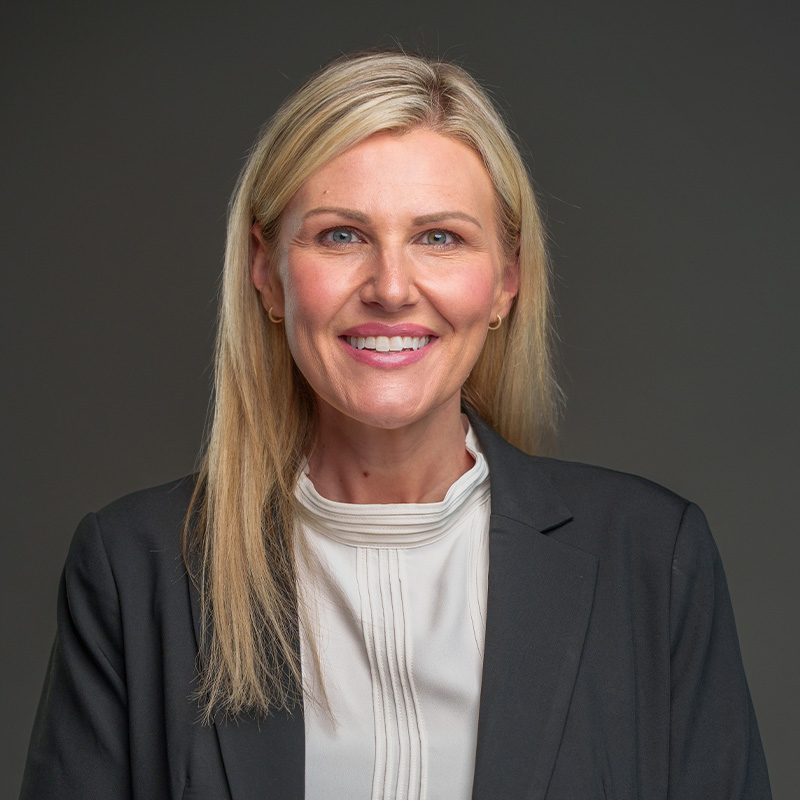What motivated you to look outside your work in the medical field and pursue an MBA?
After nearly two decades in nursing, I realized that while patient care was incredibly rewarding, I was drawn to the broader strategic side of healthcare — operations, business development, and leadership. I wanted to have a larger impact on how care is delivered, how organizations grow, and how industries evolve. Pursuing an Executive MBA was a way to formalize my leadership experience, build new business skills, and transition into a role where I could help shape healthcare from a strategic level.
Can you share any challenges you faced during your transition?
One of the biggest challenges was shifting my mindset from clinical, protocol-driven work to business environments where there isn't always a clear right or wrong answer. In nursing, precision and procedures are everything. In business, ambiguity and flexibility are part of everyday decision-making. Learning to navigate that gray area — and to be comfortable leading without always having complete information — takes time and practice.
How did your medical background influence your approach to business studies?
My medical background made me naturally analytical and detail-oriented, which helped tremendously with case studies, financial modeling, and operations management. I also found that my ability to remain calm under pressure — a skill honed at the bedside — translated very well into group projects, negotiations, and leadership challenges within the Executive MBA program.
Are there specific concentrations or electives that would be beneficial for someone transitioning from healthcare?
Electives in Operations Strategy and Leadership would be valuable. Additionally, courses in Marketing and Financial Accounting helped fill in important gaps since they aren't typically part of clinical training. Anyone transitioning from healthcare would benefit from focusing on strategy, finance, and communication — areas critical for leadership roles in any healthcare-related business.
What skills from your medical training have you found most valuable in your MBA studies?
Critical thinking, attention to detail, and communication skills have been my greatest assets. Nurses and healthcare professionals are trained to gather complex information, prioritize needs quickly, and communicate clearly — all skills that are directly transferable to business problem-solving and leadership.
Are there any gaps in knowledge you wish you had addressed before starting your MBA?
I wish I had spent more time getting comfortable with basic finance and accounting concepts before starting. Coming from a clinical background, the terminology and logic behind balance sheets, income statements, and cash flow was unfamiliar at first. A little prep work in those areas would have made the early semesters less overwhelming.
How are you building a professional network after transitioning from medicine to business?
I’ve been intentional about attending Executive MBA networking events, industry conferences, and connecting with healthcare executives through LinkedIn. I also leverage my healthcare experience when meeting people — it's a unique background that sparks great conversations and opens doors to leadership roles within health systems, biotech, and health services companies.
What career paths are you exploring based on your medical background and MBA?
Currently, I serve as the president of Xytex Corporation, a global leader in the fertility and reproductive services industry. Pursuing my MBA has added critical knowledge in areas like finance, operations, and strategic growth, which will allow me to further scale our business and build a sustainable, forward-looking model. Long-term, I’m focused on continuing to drive innovation and leadership within the fertility sector, while also positioning myself for broader executive opportunities.
How do you feel employers perceive you as a candidate with a medical background applying for business roles?
Overall, employers see it as a strong asset, especially for roles tied to healthcare, biotech, or patient services. My medical experience shows that I understand the operational realities of healthcare, and my Executive MBA signals that I can think strategically and drive business growth. It gives me an edge of credibility in industries where clinical understanding is critical.
What advice would you give to someone considering transitioning from the medical field into an MBA degree?
Don’t underestimate how valuable your healthcare experience is. It may feel like you're starting over, but in reality, you're adding a business toolkit to an already powerful foundation. Be open to learning completely new concepts, embrace the discomfort, and know that your background brings a perspective that many business students don't have.
Are there any resources (books, podcasts, or mentors) you found particularly helpful during your journey?
The most transformational part of my journey wasn’t a specific book or podcast — it was pushing myself outside of my comfort zone. Coming from a structured clinical environment, stepping into the world of business required a completely different mindset. Embracing uncertainty, taking on new challenges, and trusting myself to navigate unfamiliar situations became the most important part of my growth. That experience has been more valuable than any single resource could have been.
What do you see as future trends in healthcare management that could be beneficial for MBA students to know?
Personalized medicine, healthcare data analytics, fertility innovation, and the push for value-based care models are major trends. Executive MBA students should also watch how AI is changing healthcare operations — from administrative workflows to clinical decision support. Healthcare management increasingly demands leaders who understand both clinical complexity and business scalability.
How can someone effectively leverage their medical knowledge in the business sector?
Frame your clinical expertise as a deep understanding of the customer (the patient), operations (healthcare delivery systems), and regulatory complexity. These are massive advantages when working in healthcare business roles. In meetings, in interviews, and on your resume, make sure you position yourself as someone who can bridge front-line realities with executive-level decision-making.

